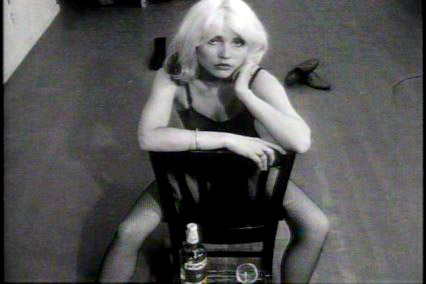|
Reviews of Recent Independent, Foreign, & Documentary Films in Theaters and DVD/Home Video

BLANK CITY Perhaps most artistic movements have a love-hate relationship with definitions. Céline Danhier’s adoring documentary on the “No Wave” 1970s New York independent film scene understands this perfectly. We’re treated to a who’s who of this very specific East Village community, which features breakouts Jim Jarmusch and Steve Buscemi, but also includes dozens of underground filmmakers, like directors Richard Kern and Nick Zedd. Ironically, it was a scene—in rock, art, and culture—that defied labels, covering the pivotal time period from 1976 to around 1980. Danhier deliberately allows these subjects to tell the stories themselves. Casting is everything in this one, because this story is best told by those who actually lived it. The lead singer of the band Contortions, James Chance, gives his take in a unique drug-addled cadence, describing this scene from the inside out, while Sonic Youth founder Thurston Moore’s version is like that of a contemporary historian. As actor and musician John Lurie puts it, “Nobody was doing what they knew how to do. You didn’t want to have any technique.” This movement, which combined punk rock with punk Super-8 millimeter filmmaking, is so specific to this time and place. (“You really have to credit Amos Poe for starting independent film after Andy Warhol,” according to actress Patti Astor.) Nick Zedd’s grand manifesto, which kicked off a mini-movement that’s been called “The Cinema of Transgression,” includes a call to “go over the boundaries of millimeters.” It’s a clever indication of the breakthrough possibilities of film as a medium. Not only can an audience get off on the content, but the techniques themselves vie for attention. This has been happening since 16 mm was invented and continues today, where anyone can practically shoot, edit, and distribute a feature on an iPhone, or, who knows what’s next, Google Maps Street View? Breakthroughs may feel like they are all about the technology or the message, but ultimately they are really about the people involved. Danhier is, thankfully, careful to steer these interviews away from nostalgia. Apart from the opening we-didn’t-know-what-we-were-doing-we-just-picked-up-a-camera-like-Cassavetes-and-shot-what-we-felt-like monologues, there’s not much else that smacks of romanticism here. Punk wasn’t sentimental, and most of these folks, however much in love they were with the ’70’s, are aware of this. Blank City may not be a punky film itself, but it certainly doesn’t put on airs.
Most interesting about this film is where each filmmaker falls on the
political spectrum. Lizzie
Borden was deliberately an activist filmmaker, while Jarmusch was a
self-proclaimed “power of ideas” guy, more interested in good art than
social change. But they were all influenced by the anxiety of the times.
From the Cold War to the gentrification of Manhattan to gay rights to
class warfare, this body of work reflects the tumult of an era. These
filmmakers, actors, and musicians may have objected to being classified,
but they certainly have no reservations on holding up the mirror.
Michael Lee
|

